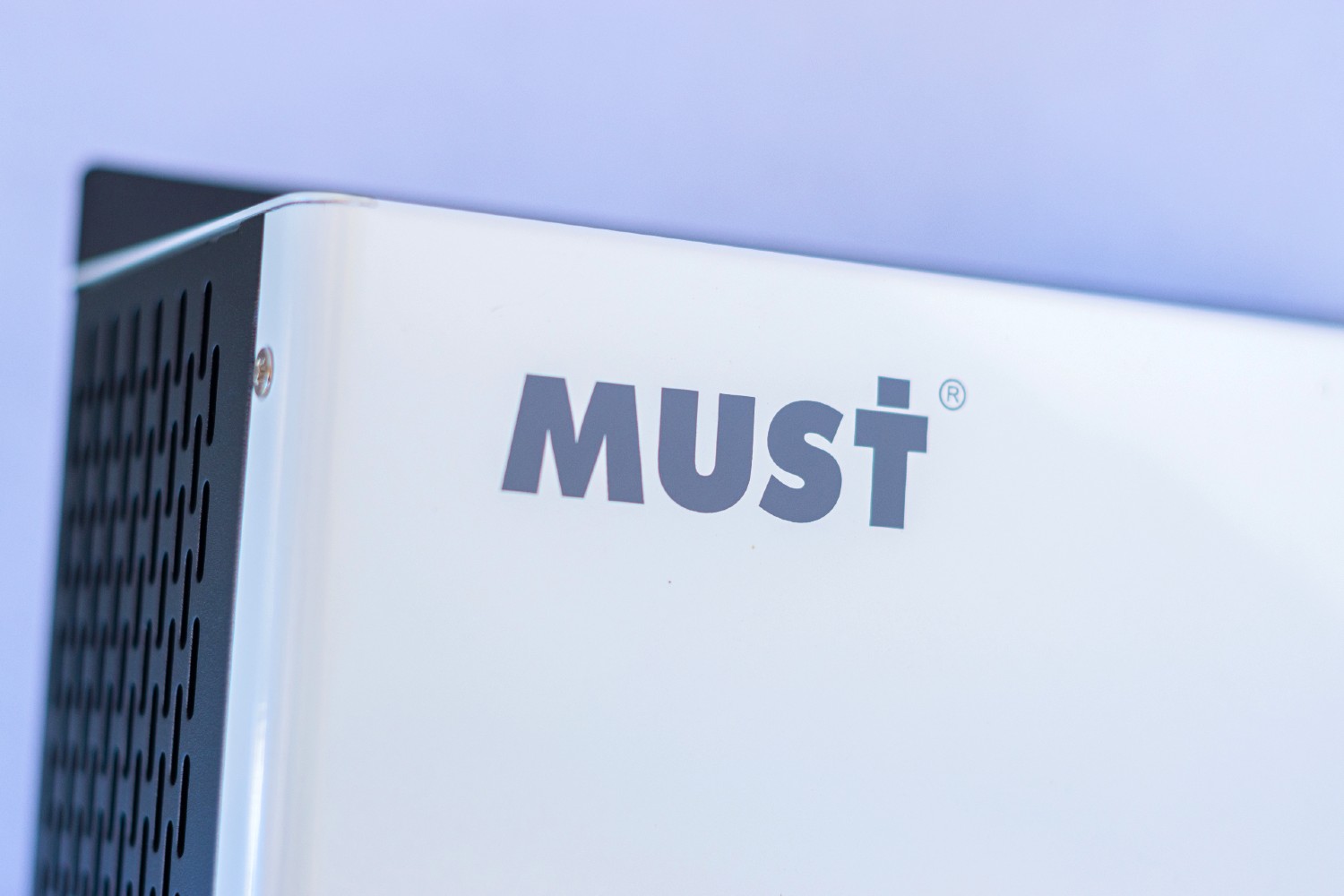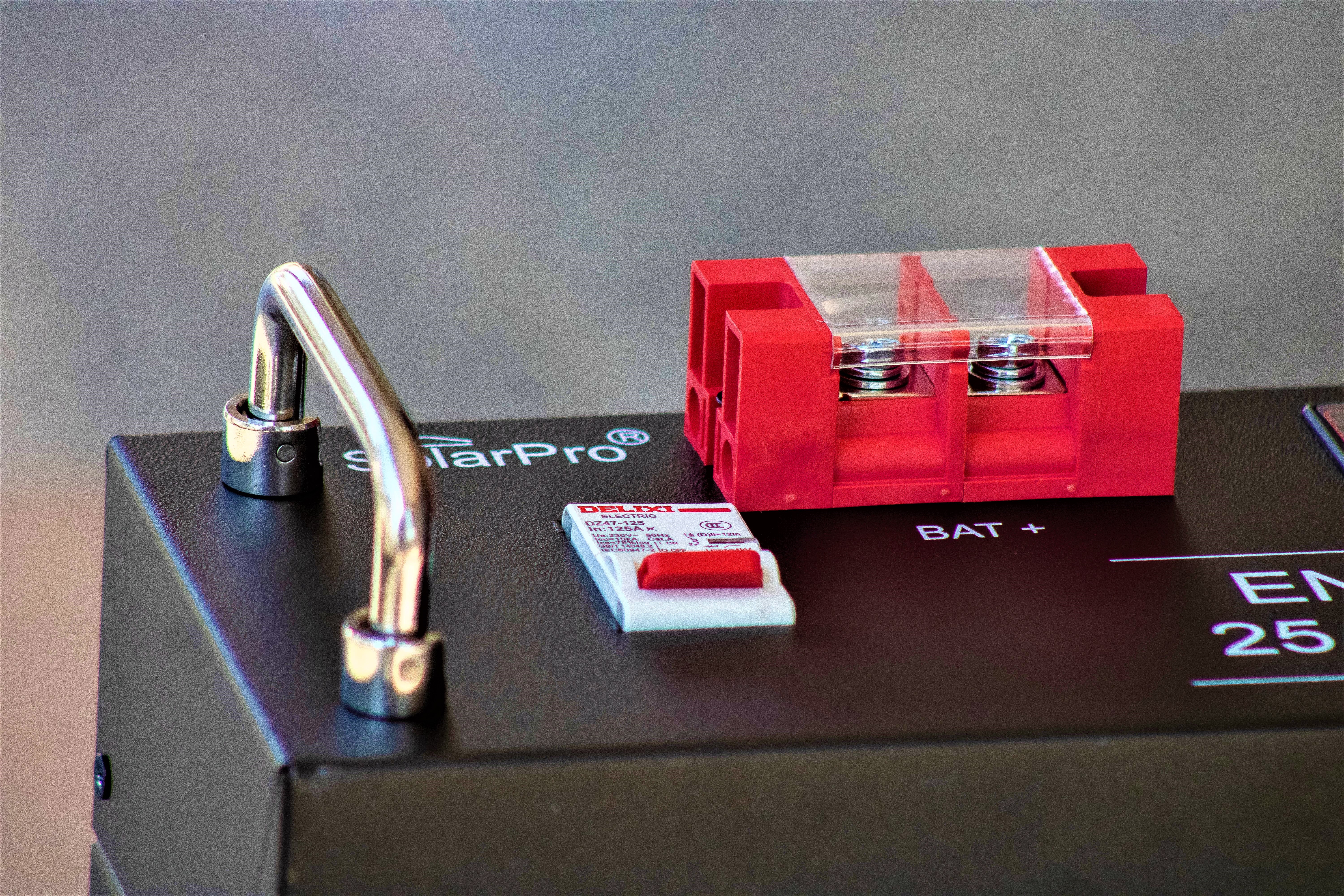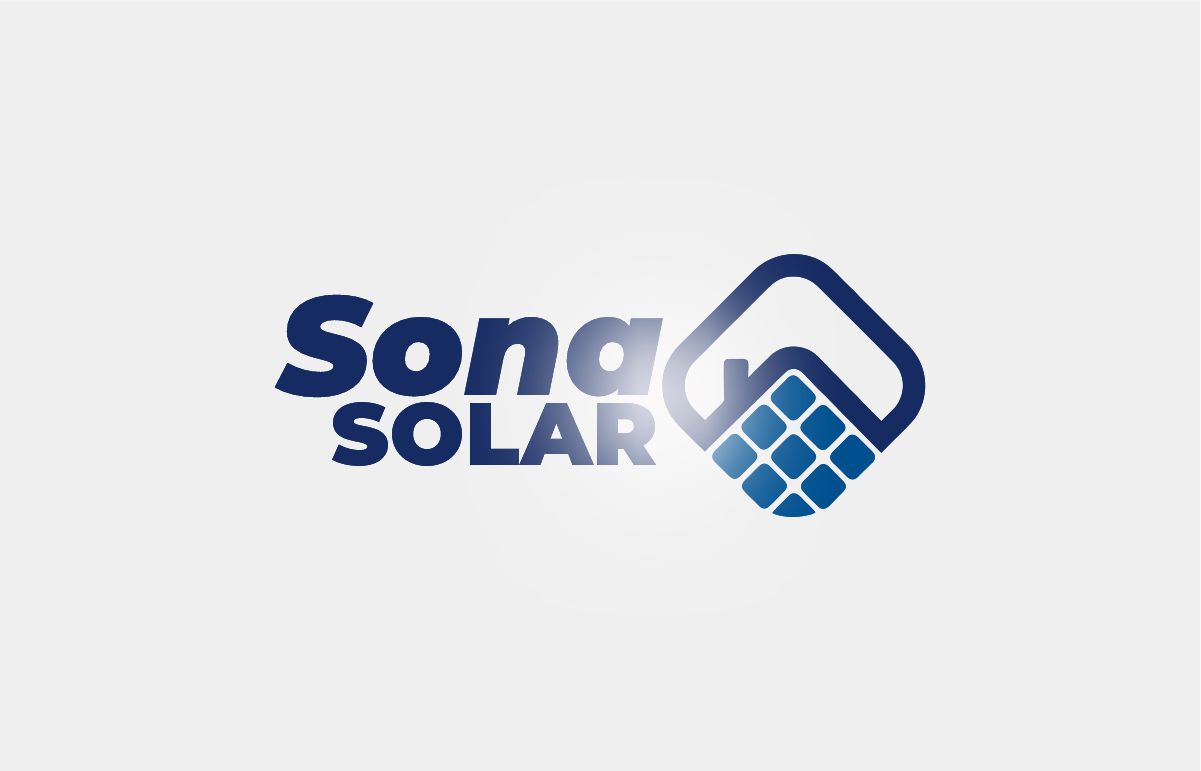An Off-Grid Solar Inverter draws power from a battery bank, and this power is then used to run appliances and whatever else you want to load in the system.
A Must 3KVA Hybrid (24Volts) Solar Inverters cannot run a 12Volts battery because it cannot produce enough power to run the inverter. The only way to do this is to connect two 12Volts batteries in a series, which will increase the voltage to 24Volts.
Why 24Volts Inverters Cannot Use a 12Volts Battery:
The manufacturer will recommend the right voltage, but usually a 24Volts inverter requires 24Volts batteries, and a 12Volts inverter is designed for 12Volts batteries. However there is a bit more to it than that.A 12Volts battery cannot generate enough power to run a 24V inverter. It is true that 12V batteries can reach 14.4Volts when charging, but even that is not enough.
Majority of inverters can only support 24Volts or 12Volts. Some inverters may provide separate connections for 24Volts and 12Volts, but they are the exception to the rule.
If you somehow get the inverter to run, it will not be able to carry any load. There are only two solutions, get a 12Volts inverter or combine two 12Volts batteries in a series.
 |
| Can I Use a Must 3KVA Hybrid (24Volts) Solar Inverter on a 12Volts Battery? |
How to Use 12Volts Batteries with a 24Volts Inverter:
While you cannot use a 12V battery, you can combine two or more of these in a series. Doing so increases the voltage and provides enough power to run the inverter.By joining two 12Volts batteries in a series, you overcome its voltage limitations. Another benefit of using a 24Volts system is you can use thinner wire gauges which cost less than the thick ones.
But what about parallel battery connections? A parallel connection increases power but not the voltage. In this case we want the voltage to go up so a series configuration is better.
Which Should I Choose, 24Volts or 12Volts Inverter?
Most off grid inverters are 12Volts, 24Volts or 48Volts. If you are still deciding what to buy, base your decision on the battery bank voltage.RVs and boats are designed to run on 12Volts, so in this case you will want a 12Volts inverter. For off grid homes, 24V is the norm. Even some tiny solar powered homes now run on this so a 24Volts inverter is preferable.
If your home is on the grid, the inverter size has to match the solar array voltage. So if you have 24Volts solar panels a 24Volts inverter is ideal.
Batteries are not required in grid tied homes because the power grid serves that purpose. If you decide to install a battery bank, the voltage must match the PV array and inverter.
One of the reasons most homes are grid tied is it eliminates the need to buy batteries. They do not come cheap especially if you want to run a lot of power loads.
But the benefit of batteries is you can have power during an outage. Grid tied solar systems automatically shut down during a power interruption, but with a battery bank you have a backup source.
If you do decide to get a battery bank, the voltage must match the inverter and PV array. Again you can connect 12V batteries in a series to match a 24V solar array or inverter.
Benefits of 24V Inverters and 24V Batteries
To keep it simple, if you are in an RV or any motorhome, use a 12V for the inverter and batteries. For homes, stick with 24Volts or 48Volts if you have really high power usage.First we need to explain why 24Volts systems have become more popular. There are many reasons but they can be summarized as follows.
- Smaller wire gauge. All solar system setups recommend using thick wires and cables because they offer less resistance. With 24Volts systems, you can settle for thinner cables and not lose as much power.
- More watts generation. A 24V 100ah battery holds twice as many watts as a 12Volts 100ah battery. If you run a lot of solar appliances this makes a huge difference.
- Occupies less space. If you need 5000 watts of battery power you will need 2 x 300 12Volts batteries. Or you can buy a single 24Volts 300ah battery. This is important if space is an issue in your home.
When you pair a 24V inverter with a 24V battery bank, the risk of a solar fire or arc are reduced and it also minimizes energy losses. The input regulation is also better compared to a 12V system, a 4.6% drop compared to 1.05%.
 |
| Can I Use a Must 3KVA Hybrid (24Volts) Solar Inverter 3kVA Inverter on a 12Volts Battery? |
What about 48V Inverters and Batteries?
While 12V is standard in RVs and 24Volts for homes, 48Volts systems are quickly becoming more popular. So is it time to switch now? Here are some simple guidelines.- If you need less than 1000Watts, a 12Volts inverter will do.
- If you require between 1000 to 3000Watts, it is best to use a 24Volts inverter.
- For power requirements greater than 3000Watts, 48Volts inverters are recommended.
To put it another way, if the demand goes exceeds 140 amps you should opt for 48V. As the current goes up, the need for larger components increase. In other words, increasing the voltage doubles the watts at the same current.
- 83A x 12V = 1000Watts.
- 83A x 24V = 2000Watts.
- 83A x 48V = 4000Watts.
Unless you have a very large shed, a large house or a solar powered office, 24V is probably enough. Just keep an eye on the amp usage and make sure it does not exceed 150.
More about Inverter and Battery Voltage and Sizes
Inverter size and voltage go hand in hand. Once you have decided what voltage to use, you can pick a size. |
| Can I Use a Must 3KVA Hybrid (24Volts) Solar Inverter 3kVA Inverter on a 12Volts Battery? |
You should also add a 20% or 25% buffer when sizing solar panels, batteries and charge controllers. Always round off the results to the nearest size. And remember, you cannot go wrong with a larger size.
Suppose you have a grid tied home. You want to install a battery bank so you can run essential appliances in case of a power outage.
First you have to list the appliances you want to run. Everyone has their own idea of what “essential appliances” are, so the following is just an example.
- Some LED lights (100Watts)
- Refrigerator (400Watts)
- Laptop (200Watts)
- Ceiling fan (100Watts)
- TV (100Watts)
The total is 900Watts, so your inverter must supply 900Watts continuously to run these appliances.
But this is only for the running watts. Inverters are also measured by their surge watt capacity. Some appliances like a refrigerator requires additional watts to start up. The surge requirement is usually twice the running watts, but with older appliances it might be triple.
.jpg) |
| Can I Use a Must 3KVA Hybrid (24Volts) Solar Inverter 3kVA Inverter on a 12Volts Battery? |
The rule of thumb is the inverter surge watt capacity is double the running watts. So a 1000Watts inverter has a 1000 running watt capacity and 2000 surge watts.
Setting up an off grid inverter involves more than just buying a battery bank. The voltage for the components have to match to run any load. By making sure the voltages match, a lot of problems can be avoided.
Common Questions and Popular Searches
Explore Answers To Frequent Questions And Discover Resources For Your Solar Journey:
1kVA Inverter Load Guide
Load guide for small households.
2kVA System Load Capacity
Powering essentials in medium homes.
3kVA System Panel Count
Understand solar array sizing.
3kVA Inverter Load Guide
Appliance guide for a typical household.
Best 3kVA Inverter Brand
Compare reliability and warranties.
3kVA Appliance Load Guide
Understand simultaneous load capacity.
3kVA Powering Motor Loads
Guidance on handling motor loads.
Choosing the Right Inverter
Matching inverters to your specific load.
Match Panels to Inverter
Tips for optimal system performance.
3.5kVA Inverter Load Guide
Explore residential setup capabilities.
Best Solar Panels Zimbabwe
Analysis of performance and durability.
Solar Companies Zimbabwe
Customer service and reliability.
Best Solar Panel Brands
Guide for home and business solutions.
Solar Installers Zimbabwe
Professional and certified installers.
3kVA System Cost Guide
Get pricing information for Zimbabwe.
5kVA System Cost Guide
Budget requirements for systems.
Contact Our Sales Team:

Sona Solar Zimbabwe
Address:
7 Frank Johnson Avenue, Eastlea, Harare, Zimbabwe.
Call/WhatsApp:
Sales:
+263 78 293 3586
Sales:
+263 78 922 2847
Operations:
+263 78 864 2437
Email:
sonasolarzw@gmail.com
Website:
www.sonasolar.co.zw

Borehole Experts Zimbabwe
Address:
7 Frank Johnson Avenue, Eastlea, Harare, Zimbabwe.
Call/WhatsApp:
Sales:
+263 77 389 8979
Sales:
+263 71 500 3777
Operations:
+263 71 918 7878
Email:
boreholeexpertszw@gmail.com
Website:
www.boreholeexperts.co.zw

Follow Our Social Media Icons
TikTok Pinterest YouTube Telegram WhatsApp